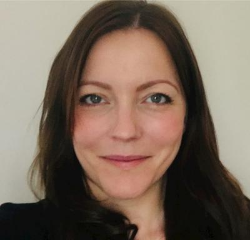
Ms Cheryl Oxley, Senior Chief Cardiac Physiologist at University Hospitals of North Midlands NHS Trust, discusses the avenues available to healthcare scientists who want to set up scientist-led services.
Cardiac physiology as a profession was relatively unheard of when I started my career in 2001, despite our vital diagnostic services being an integral part of patient pathways.
Our work, at this time, was often overseen by cardiologists with reports being countersigned by them or other medical teams. The introduction of technician led exercise testing was really the starting point for the development of more autonomous practice across cardiac physiology. The developments that we have seen have been driven by service need, well supported by our medical colleagues and underpinned by improved access to education, training and accreditation in line with recommendations made in the BCS/ SCST strategic review of cardiac physiology services published in 2015. Modernising scientific careers has raised the profile of our profession by identifying cardiac physiology, and indeed other physiological sciences, as part of the wider healthcare science service giving us a bigger voice and more representation.
As a profession, cardiac physiology has grown enormously. We are seeing masters degree entry programs and access to professional registration with the health and care professions council (HCPC). These have emerged along with a growing number of scientist led services, particularly, within echo. The benefits of these clinics are well documented; we have shown improved access through shorter waiting times and reductions in unnecessary diagnostic tests by following the latest best practice guidelines. They promote efficiency, often through a ‘one stop’ service design which also reduces the number of hospital visits for patients. In these settings the physiologist assumes the role traditionally performed by a consultant not only resulting in a cost saving but also allowing consultants more time to carry out other tasks. In addition to these benefits investing in the scientific workforce improves job satisfaction, and recruitment and retention of skilled staff in a recognised shortage profession.
Currently, there are a number of physiologist or scientist led services within echocardiography such as heart valve surveillance clinics, herceptin clinics, stress echo, transoesophageal echocardiography and contrast echo clinics. How these services are set up and run varies from centre to centre but commonly they require expansion of practice documentation, clinical governance approval, are protocol driven and involve regular audit / quality assurance processes.
In a valve surveillance clinic, the physiologist will take a clinical history, perform a cardiovascular examination, carry out a standard transthoracic echocardiogram cross comparing with previous studies, feedback results directly to patients with a clear strategy for ongoing follow-up and finally communicate outcomes to the GP. Herceptin clinics are run in a similar fashion with the physiologist proactively managing patient scheduling, reporting results to patients and oncology teams and managing interventions required in the setting of left ventricular dysfunction in conjunction with the patients GP. Physiologists accredited in TOE are well placed to deliver not only on inpatient and outpatient TOE but also to support structural interventional imaging and electrophysiology studies, where lists and cases can occasionally be long, freeing up imaging cardiologists to concentrate on other things. Stress echo lends itself well to being a physiologist led service, both for dobutamine and exercise stress modalities in terms of performance and reporting, supported through current accreditation processes.
Access to further training for scientists working in these settings is essential, subject specific training, clinician mentoring, access to health assessment courses and attaining appropriate accreditation as a minimum standard of practice is required for these services to continue to grow. Working within approved protocols, understanding our limitations and the implementation of quality assurance process’ is the key to ensuring patient safety. There have been several publications that have looked at the safety and efficacy of physiologist led services, the outcomes of which have been very favourable. The availability of statutory regulation for clinical scientists will further boost confidence within these services. The current consultation document regarding patient group directives for clinical scientists is another step towards more autonomous practice.
The future for clinical scientists lies in further development of advanced practice roles, more involvement in multi-disciplinary teams, collaboration between departments and across regions to share best practice and learning opportunities.
Cheryl and the team at University Hospitals of North Midlands NHS Trust have put together a fantastic programme on scientist-led services for the next BSE regional webinar on Friday 26 March 2021.
Find out more